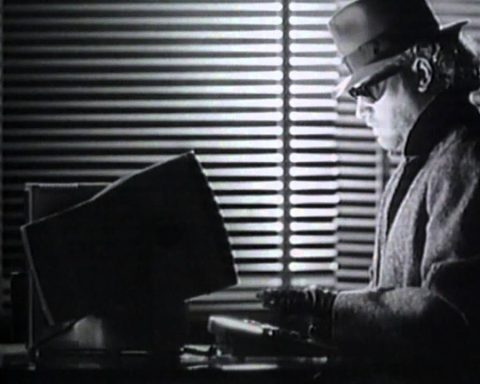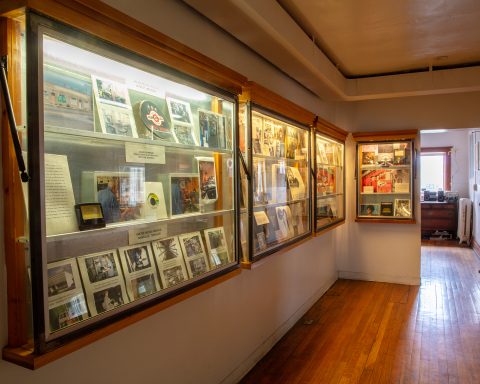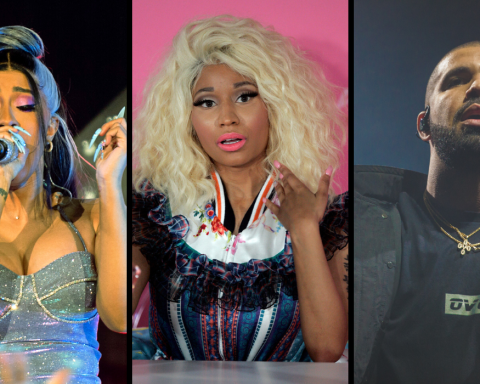Female rappers dominate the mainstream space in 2021. Artists such as Cardi B, Megan Thee Stallion, and Nicki Minaj often own the Billboard chart. However, they only offer one view of the female rap landscape. Before rap was the world’s most popular musical genre, several groundbreaking women blazed a fiery trail for others to follow. The story began with MC Sha-Rock of the Funky 4 + 1, often credited as the first female rapper on wax. Following her lead, Roxanne Shanté, MC Lyte, Queen Latifah, J.J. Fad, and Bahamadia busted through the doors so other women could flourish. Take a listening journey through hip-hop’s matriarchy.
Playlist
That’s The Joint by Funky 4 + 1 (Sugar Hill Records)
The trail of women MCs traces back to MC Sha-Rock. She rapped with Jazzy Jeff, Guy Williams, Keith Keith, The Voice of K.K., and Rodney Stone as part of the Funky 4 + 1 on the 1980 disco-infused single “That’s The Joint.” Arranged by jazz musician Clifton “Jiggs” Chase and produced by Sugar Hill Records’ Sylvia Robinson, the song samples A Taste of Honey’s “Rescue Me.” Beastie Boys famously sampled the track for 1989’s “Shake Your Rump” from Paul’s Boutique.
Roxanne’s Revenge by Roxanne Shanté (Select/Pop Art Records)
Roxanne Shanté was just a mouthy, rebellious teenager when she joined the Juice Crew. As a member, she performed alongside East Coast greats Mr. Magic, Big Daddy Kane, Biz Markie, and Marley Marl, among others. In 1984, she unleashed “Roxanne’s Revenge” in response to U.T.F.O.’s “Roxanne, Roxanne” single about a woman who refused to get seduced. It not only marked one of the earliest diss tracks by a woman on record, but it would also ignite the Roxanne Wars, hip-hop’s first official rap beef.
It’s My Beat by Sweet Tee & DJ Jazzy Joyce (Profile Records)
In the 1980s, Sweet Tee and DJ Jazzy Joyce signed to Profile Records, the label responsible for Run-DMC, DJ Quik, and Rob Base and DJ EZ-Rock, to name a few. In 1986, they dropped their breakthrough single “It’s My Beat.” The tune came with a shoutout to their “Casio and drum machine” over Herby Luv Bug’s Roland TR-808 banger.
Supersonic by J. J. Fad (Ruthless Records)
“Supersonic” by MC JB, Baby D, and Sassy C isn’t just rap’s first platinum hit. The song also played a pivotal role in introducing West Coast gangsta rap to the mainstream. The late Eazy-E instinctively knew the world wasn’t ready for N.W.A’s brazen attitude—but J.J. Fad was the solution. With their bubblegum raps and innocence, Eazy-E knew J.J. Fad would help break down the barriers for Ruthless Records to begin its takeover.
Poor Georgie by MC Lyte (First Priority/Atlantic Records)
With a focus on the often taboo topic of addiction, “Poor Georgie” finds MC Lyte digging deep to paint a portrait of a man struggling to beat the odds. Produced by DJ Doc, it samples Toto, The Supremes, Michael Jackson, Jimmy Spicer, and Eric B. & Rakim. The track is a sonic patchwork quilt of diverse sounds, all sewn together by MC Lyte’s unexpected bravado.
U.N.I.T.Y. by Queen Latifah (Motown Records)
From the moment Queen Latifah called out sexism on “U.N.I.T.Y.,” the legendary New Jersey MC asserted herself as an impenetrable force. She refused to allow any man to degrade her. The song’s unmistakable horns and jazzy samples come from The Crusaders’ 1974 single “Message from the Inner City.” “U.N.I.T.Y.” remains one of the most recognized women-empowerment anthems in hip-hop history.
Afro Puffs by The Lady Of Rage (Death Row Records)
The Lady of Rage came up at a time when West Coast G-Funk was the soundtrack of an era. Despite being from Virginia, Rage easily fit in with her Compton and Long Beach counterparts. 1994’s “Afro Puffs” wound up being the perfect introduction to the tough-talking MC—despite her initial hesitancy. Crafted by fellow Death Row artist Dr. Dre, the song takes notes from Johnny “Guitar” Watson’s 1977 hit “Love That Will Not Die.” That song provides the backbone of the dark and menacing beat for The Lady of Rage to flow over.
Unknowhowwedu by Bahamadia (Chrysalis/EMI Records)
Bahamadia exploded onto the Philadelphia hip-hop scene with her 1996 debut Kollage. The album contained the standout track “Unknowhowwedu.” Using samples from A Tribe Called Quest’s “The Chase, Part II” and Schoolly D’s “Gucci Time,” producer Ski Beatz delivered a timeless, boom bap beat.
Ready or Not by The Fugees (Ruffhouse)
As always, Lauryn Hill murdered her verse on the 1996 Fugees single “Ready Or Not.” With lines such as, “While you out there imitating Al Capone/I’ll be Nina Simone and defecating on your microphone,” Ms. Hill was out for blood. Borrowing heavily from the Delfonics’ “Ready Or Not Here I Come (Can’t Hide From Love),” the song also contains a sample of Enya’s “Boadicea.” In fact, the inclusion almost led to a lawsuit. However, once the new-age singer realized it wasn’t gangsta rap, The Fugees were able to settle out of court.
Love Of My Life (An Ode to Hip-Hop) by Erykah Badu ft. Common (MCA Records)
While more of a Neo-soul chanteuse than an MC, Erykah Badu fully embodies hip-hop. This is especially the case on the 2002 Brown Sugar single, “Love Of My Life (An Ode To Hip Hop)” featuring her ex, Common. Ms. Badu fires off a dizzying 16 midway through the video, proving she’s packing innate rhyming skills in her “30, 26, 36-and-a-half” frame, too. Plus, look for the Roland R-8, which makes a brief appearance in the accompanying visual.
Aaliyah by Rapsody (Jamla/Roc Nation)
Rapsody released the masterful EVE in 2019. The album pays tribute to numerous powerful Black women who have inspired her throughout her life. On “Aaliyah,” Rapsody mourns the lack of diversity in the landscape of mainstream rap. “When Aaliyah was alive/It was cool to be a tomboy,” she raps over a slick, boom bap beat. At the same time, she reminds us there’s room for more than one type of female rapper, and baggy jeans and hoodies are still allowed.






